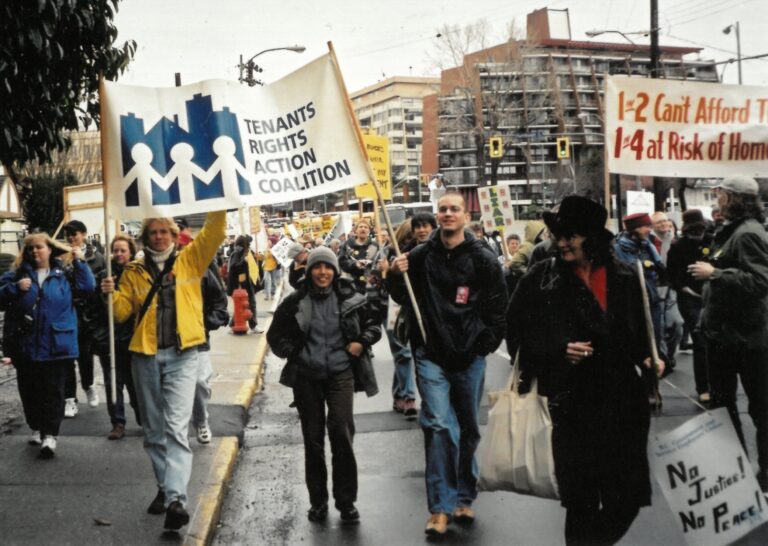There was good news in BC in January for folks with pets and the pets themselves: for the first time in Canada, judges in BC must consider the interests of companion animals in divorce cases. This includes who normally cares for the animal, their bond with children, and whether there is any risk for neglect or abuse. It’s no longer simply who purchased and “owns” the animal. It’s a welcome step for a country that normally treats animals as property.
But there is another important aspect of BC law that needs to reflect our understanding that separating animals from the people who love and care for them is needlessly cruel: housing policy.
Currently in BC it is legal for landlords to impose any restrictions they want on pets, such as on size and quantity, or they can ban companion animals outright. If a tenant gets a pet that violates the terms of their tenancy agreement, they can be evicted for cause. If a would-be tenant already has a pet, it can be extremely challenging to find affordable housing.
These pet clauses are having a tragic impact on tenants throughout the province who are often faced with the dilemma of renting a unit they can afford or giving up the animal they love. Faced with this choice, some tenants give up their animal at shelters, like this cat who was left in the middle of the night with a note that read, “couldn’t find a home that would accept pets. So very sorry. Please help her.”
According to the BC SPCA, for the eight years between 2014 and 2022, people surrendered more than 11,000 animals, and lack of affordable housing was the primary reason. In the words of one shelter’s director, “the housing crisis is absolutely destroying, and literally tearing families apart.”
The animals suffer also. Without understanding, they might find themselves permanently separated from the humans they’ve bonded with. They may end up in a shelter or on the street (sometimes with their human companions who refuse to give them up and can’t find a place to live). They may be euthanized.
Landlords claim pets will damage their property, but they have protections. Landlords are able to charge a pet damage deposit when a tenant has a pet. They can require tenants to obtain insurance, including liability. Tenants are legally responsible to fix or pay for any damage they cause beyond reasonable wear and tear during their tenancy – including damage caused by their animals.
Our housing policy needs to make a similar progressive stride that family policy did recently. Landlords should not be able to evict tenants for getting companion animals. They should not be able to refuse tenants with companion animals, nor impose restrictions on companion animals in reasonable circumstances.
This is not a new idea. The now-defunct Pets OK BC championed the abolition of pet clauses in tenancy agreements at least until 2021, and helped make the issue prominent in the Rental Housing Task Force’s recommendations and findings in 2018. In 2020, Vancouver City Council unanimously voted to end no-pet clauses (although they cannot change provincial housing policy, they can and do still offer recommendations to the province). And though landlords sometimes claim they will stop renting their property if no-pet clauses are outlawed, Ontario has voided no-pet clauses since 2006 and there are still plenty of landlords and tenants in Ontario.
Tenants and fairness demand this change. It’s time for the BC Ministry of Housing to step up and put an end to tenancy clauses that tear families apart during our eviction crisis.
Stay updated on the latest tenancy issues by subscribing to our newsletter:
Correction: an earlier version stated that Ontario’s Conservative government changed tenancy law in 2021 to render all no-pet clauses void, when this change occurred in 2006 under the Liberal government.

BC’s Backward Eviction System and How to Fix It
We need to fix BC’s backward eviction system.

Election 2024: Where BC’s Main Parties Stand on Tenancy and Housing
The provincial election is your opportunity to shape housing policy – find out where BC’s three main parties stand on tenancy and housing.

A Provincial Call to Action on International Tenants’ Rights Day
On this International Tenants’ Rights Day, we call on BC’s government make changes needed to ensure housing is a human right.
